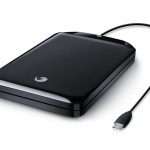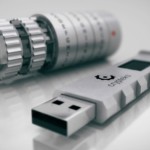Today, we are living in a highly information prolific and technological era and personal, private or work data is feeding the vast global information system that connects us all. Also, most companies are going paperless, adopting the popular eco-friendly approach, and having information in digital form can have many consequences, other than the ones of having physically accessible data.
The USB Storage Devices
 The most popular devices for storing or carrying around digital data are the USB storage devices. They can be USB flash drive, memory cards or USB pens, and they come in many shapes, sizes or colours. The thing they all have in common is the flash memory chips that actually store your information in digital format.
The most popular devices for storing or carrying around digital data are the USB storage devices. They can be USB flash drive, memory cards or USB pens, and they come in many shapes, sizes or colours. The thing they all have in common is the flash memory chips that actually store your information in digital format.
The USB storage device has many names, flash drives, memory drive, thumb drives, memory sticks, and many other names, but they all refer to the same thing, a portable device that carries your digital data. They can store any digital data that is also stored on your personal computer, laptop or notebook, no matter in what format they are. The memory capacity can have a wide range, depending on how much you want to spend, from 64MB to 128GB, and even much higher.
Now, the USB storage device usually can fit in your palm or your pocket. They are small in size, but their capacity to store data is huge. A 32GB flash drive can store around 32,000 novels and they fit in a small pocket. Just think about this. They were used as a tool for special operatives, spies and government agencies, but now anyone can purchase one, at very affordable prices.
The USB flash drive
 The small size of the USB flash drive is the greatest feature, but it is also its greatest weakness. Any USB stick can be misplaced and even stolen, and because of its small size you will not notice until you need the data stored on it. And if it contains sensitive data, or huge amounts of data that you have no back-up for it, the impact is even higher. When one of those tragic events happens, imagine the frustration of knowing your data floating around town in a bus or in coffee café. Or knowing that your sensitive data in the hands of other people. It is also a slim chance of someone, a Good Samaritan, finding you USB flash and return it to you.
The small size of the USB flash drive is the greatest feature, but it is also its greatest weakness. Any USB stick can be misplaced and even stolen, and because of its small size you will not notice until you need the data stored on it. And if it contains sensitive data, or huge amounts of data that you have no back-up for it, the impact is even higher. When one of those tragic events happens, imagine the frustration of knowing your data floating around town in a bus or in coffee café. Or knowing that your sensitive data in the hands of other people. It is also a slim chance of someone, a Good Samaritan, finding you USB flash and return it to you.
The question is how to protect your data in case one of misplacing your USB storage device or in case it is stolen. Well, there are a few things that anyone can do. First, don’t store irreplaceable data or information without a back-up. Always, but always, make back-up to your digital data. And look on the internet for encryption or copy protection methods for your USB storage device.
Treat your digital data like hospitals, insurance companies or other agencies do. If your data has any importance to you, you will not like it to be leaked over the internet or in the hands of other people. You don’t need to be an IT expert or a professional computer technician to protect your information, just be proactive and try to prevent any potential problems may appear, for yourself and for the ones you entrusted your important data with.
